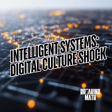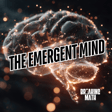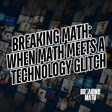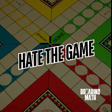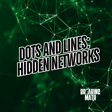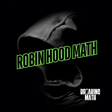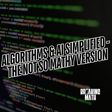Introduction & Themes
00:00:00
Speaker
It's a story of ambition, rivalry, and philosophy. A time when mathematicians weren't just solving equations, they were trying to rebuild the very foundations of truth.
Guest Introduction: Jason Socrates-Barty
00:00:13
Speaker
Welcome back to another episode of Breaking Math. I'm your host, Autumn Feneff. And today we're diving into one of the most fascinating and surprisingly emotional chapters in the history of ideas, the Great Math
Impact of Ego and Politics on Math & AI
00:00:27
Speaker
War. Our guest is science writer Jason Socrates-Barty.
00:00:31
Speaker
author of the Great Math War, a sweeping narrative that takes us from the rise of logicism and formalism to levels of infinity and beyond. We'll explore what happens when human ego, politics, and world events collide with pure mathematics matter and why the questions asked a century ago still shape the age of artificial intelligence today.
Inspiration Behind 'The Great Math War'
00:00:55
Speaker
So, Jason, what first drew you to the story? Was it history, philosophy, or something personal that made you want to write The Great Math War? Yeah, that's a great question. um It was actually all of the above. And it really started in a very personal way because I was at my dad's retirement party in 2017.
00:01:16
Speaker
he was a He was a professor at Penn State and he was retiring. I was telling one of my father's colleagues about ah my first book, The Calculus Wars, the famous fight between Newton and Leibniz over who invented calculus.
00:01:29
Speaker
And she said, oh, that reminds me a lot of David Hilbert and this dispute that he was involved in. known as the Foundational Crisis in the 1920s. And I had never heard of it, and so I was interested. And then she told me, well, nobody's ever really written about this before. And of course, as a writer, those are the golden words, you know, ding, ding, ding. In my mind, an alarm bell went off. And then so I started researching it. I started working on it slowly at first, just getting some articles and reading them. And about two years later, i was working on my proposal and I was very serious at this point. This is what i'm going to write my book about.
00:02:09
Speaker
So I was having a conversation with my father over the phone, and this was in the very early days of the the the COVID pandemic.
Personal Influences on Mathematical Narratives
00:02:18
Speaker
And I told him what I was working on, and I told him one of the main characters was Bertrand Russell. And he said, oh, we almost named you Bertrand Russell.
00:02:28
Speaker
And I just was floored by that because I had no idea. They did name me Socrates. And in my my introduction, I talk a little bit about that history of the names.
00:02:40
Speaker
um But it was apparently one of these things. Bertrand Russell one of my dad's heroes at the time. He was an anti-war activist during the Vietnam War. And I actually stopped my dad in his tracks because I told him that the Bertrand Russell I was writing about, the Bertrand Russell of 1900, not of 1970, when I was when actually died five days after I was born.
00:03:04
Speaker
he actually died five days after i was born But in 1900, 70 years earlier, he was he was a very different person. He was a mathematician. He was ah philosopher, of course, but he was also pro-British. So that was that was the personal aspect, and it got even more personal when my father died a few weeks after that conversation during the pandemic. And really, that was one of the last conversations I ever had with him.
00:03:35
Speaker
And I was very influenced by that because, of course, in this book, there are a bunch of the characters. Bertrand Russell lost his father at an early age. His girlfriend, Adeline Morrell, lost her father at an early early age.
00:03:49
Speaker
George Cantor, one of the the main figures in the book. He lost his father. He also lost his son. So there was this kind of grief all over
Philosophical Clashes in Mathematics
00:03:59
Speaker
the book. And it was it was extremely hard for me to deal with this in the writing of the book. I had such a personal feeling for but for for this kind of loss because of the loss my own father.
00:04:11
Speaker
So I wound up making it, you know, very personal in a way. i wasn't talking about my own experience, but I was using my own experience to talk about, for instance, what it was like for George Cantor or what it was like for Bertrand Russell to have lost their father and what that means.
00:04:28
Speaker
And then, you know, the other thing you were asking about is mathematically. So once I started researching this and I, you know, started looking into set theory and, you know, teaching myself set theory and, you know, studying infinity and the different types of infinity, you know, what I call big infinity and small infinity, and your listeners, of course, will correct me, denumerable, non-denumerable infinity.
00:04:56
Speaker
You know, it's funny to to to read comments and reviews because, of course, you know, writing about math, there's a lot for a general audience. There are a lot of people out there who will approach a book like this with trepidation. you know, I'm not a math person.
00:05:13
Speaker
Will I understand it? And, you know, they'll they'll appreciate aspects of it, many aspects. But, you know, often that person will say, well, you know, it was good. There's there's a little too much math in the book. And then, of course, you know, the person who has a technical math or engineering background who really, really wants the mathematics, their comment will be, there's not enough math in this book. So how do you please both audiences? That's always a challenge.
00:05:39
Speaker
Now, why does that metaphor of the philosophical clash between those three categories, logicism, formalism, and intuitionism as a war, fit? fit Right. So for a couple different reasons, and
Academic Rivalries as War Metaphors
00:05:55
Speaker
I am, of course, aware of the fact that some people complain about using war metaphors for academic disputes. I mean, there there is that there is that idea out there that you shouldn't call something a war, you know, the war on drugs or any other type of war. War should be reserved for actual wars.
00:06:16
Speaker
um However, in this case, the the main characters used war metaphors all the time in fighting each other and, you know, characterizing the other person. Ellie J. Brower, who was one of the the main combatants, he— um he was He was really big in casting this idea as—in casting the foundational crisis and casting what he was trying to do with intuitionism as a revolution.
00:06:45
Speaker
And he was using— kind of revolutionary language that mirrored what was happening in Russia at the time. And and and that's the other thing. A lot of what I talk about in this book took place before, during, and after World War I, immediately after World War I. And so everybody was in a war mentality anyway, and they used the war language metaphors anyway. And that's where the title came from, really, was The Great Math War is a play on the the the term the great war because it sort of landed right in the middle of this um now each side had its own version of what truth meant right who are the players these people feel almost like generals if we're complaining on the war metaphor here right so how would you characterize their missions
00:07:38
Speaker
What but Russell tried to do prior to World War one was to really work out the logical basis of mathematics, and he wrote one of the most important books in logic ever written, the Principia Mathematica. And it was hailed as a tremendous success, even though it didn't ultimately accomplish its goal. It didn't establish the logical foundations of mathematics.
00:08:06
Speaker
And so after World War one there were two other mathematicians who led two other attempts to to basically try to solve the foundations of math in two different ways. And so one was David Hilbert.
00:08:21
Speaker
And he developed formalism and metamathematics, which was an idea of, like, treating mathematics as a formal rule with um with games, a formal game with formal rules, where it didn't really matter what objects you were looking at in mathematics. It was really a question of what rules and how do you work out the ah the solutions to the problems that you're that you're asking. You know, the way I think of this is is the game of chess. And so in the book, I talk about how I have three separate chess boards in my house. When I play chess, I have an old plasticky set where, you know, I play.
00:09:03
Speaker
um and But the point is that it doesn't matter what the set is or what the pieces are. You know the rules. you know how the pieces move.
00:09:14
Speaker
You know, the pawn moves one space forward or two spaces on the first move, etc., etc. And so David Hilbert thought, you know, math should be the same way. It should be a game of rules, and we simply figure out how to solve problems on that basis. And then He had his, you know, sort of arch nemesis was a Dutch mathematician whose name was Bertus Brouwer, L.E.J. Brouwer, who he developed intuitionism as his approach to to mathematics. And it was the idea of math as being a constructive process where you have kind of whole numbers,
00:09:56
Speaker
And mathematics is simply the way that the brain goes about constructing things mentally. And it was a very different, very original approach.
Modern Relevance of Historical Math Philosophies
00:10:05
Speaker
And people were very excited about it at the time. You know, remember, he was calling himself a revolutionary and calling his mathematics revolutionary. It tended to be a little bit unwieldy.
00:10:16
Speaker
And ultimately, it fell out of fashion because, well, number one, he he He egregiously lost the great math war to Hilbert. But number two, he sort of gave up on his ideas himself. In fact, sadly, later in life, he basically said, i don't like mathematics. And that was that was the sad legacy.
00:10:39
Speaker
Now, if I could just say one last word about Brouwer, at the very end of my book, I talk about how I think his his ideas are worthy of revisiting and worthy of digging up again for very specific neurological reasons. Because I think that modern neuroscience is starting to show that some of his ideas about how we construct things the world mathematically, how we see things, are turning out to be correct.
00:11:08
Speaker
And um I talk a little bit about, at the end of the book, about this growing literature of other animals that could do math, you know, chimpanzees and apes, even crows.
00:11:22
Speaker
So just a few years ago, Some researchers discover in Germany discovered that crows can be taught to peck out recursive sequences, which recursion was something that was always thought to be solely an aspect of human intelligence, but crows can apparently learn to do it.
00:11:42
Speaker
Babies can reason. There was another study just a couple years ago in Barcelona that showed that infants as young as a year old or you know, a year and a half old they can they can form competing hypotheses and weigh between the competing hypotheses to come up with a conclusion. And that's extraordinary.
00:12:03
Speaker
Now, why is that? why is ah Why is it the case that, you know, that— that You know, all these different animals, you know, crows and you know, even even even Nemo, the anemone fish.
00:12:19
Speaker
Apparently, it turns out, you know, researchers researchers in Japan showed that anemone fish are able to recognize other anemone fish that are within their family group by counting the number of stripes on their body. And they do this very accurately. They do it very quickly.
00:12:36
Speaker
And so why is it that all these different animals have the ability to do math? I think that it's math is going to turn out to be a fundamental human primitive, something that goes way back in evolution.
00:12:49
Speaker
And it basically conferred on human populations and many other different species, the survival advantage of being able to assess data, to weigh, you know, make decisions based on data, to count, you know, as Robert Frost said, counting winter dinners on a hill.
00:13:09
Speaker
The idea of, you know, being a hunter and gatherer who can actually quantitatively assess, have I gathered enough food for the winter? That's a huge, huge survival advantage.
00:13:21
Speaker
Yeah. um so So I think that all that is very compatible with Brouwer's worldview and his idea of coming up with mathematics as a way of assessing things based on simple counting.
00:13:39
Speaker
Now, I'm curious. Hilbert's confidence was legendary, and his belief was that every problem could be solved with enough human ingenuity.
00:13:51
Speaker
but Do you see the echoes of that same optimism in today's tech world with ai I know. It's a little bit of a parallel here. Yeah, yeah, yeah. No, absolutely. So that's a great question. I mean, I start out my book in the year 1900 in Paris in the summer, and the Paris Expo is
Hilbert's Unsolved Problems and AI Parallels
00:14:13
Speaker
going on. There are all these new futuristic things on display.
00:14:17
Speaker
Cars, for instance. Most people have never even seen a car. The city is filled with cars that summer. And also at the Expo is the very second ever Mathematical Congress. The International Congress of Mathematicians is taking place that summer, and they held it because they thought that the Expo would be a draw that would attract more mathematicians. Hilbert gave his one of his...
00:14:42
Speaker
The most famous things he ever did was give this lecture in 1900, the 23 Problems Lecture, where he talked about the future of mathematics. And he talked about it in a way just by simply laying out, here are 23 problems that we need to solve.
00:14:59
Speaker
And these were these were not easy problems. I mean, some of them had bedeviled mathematicians for for centuries. I mean— Kepler's orange stacking problem was one example. So some of these problems had been around for many years.
00:15:13
Speaker
None of them were going to be easy to solve. And by laying them out, what he was doing was he was inviting people to kind of come and apply themselves. Because as you said, he very much believed that any problem could be solved because given enough time and energy and patience and hard work that you could do it.
00:15:35
Speaker
And in fact, what I call that in the book is, I call it exuberant solutionism, was his philosophy. He really did believe that we could solve any problem.
00:15:45
Speaker
and And I think that this was really the birth of what we call futurism. Now, futurism wasn't actually born, so to speak, until a few years later.
00:15:57
Speaker
There was a ah an Italian artist, Tomasino, who coined the word futurism in a ah newspaper article. But it was really Hilbert, I think, who sort of gave this flavor, this modern flavor of futurism, where we see the future as one of inevitable possibility,
00:16:19
Speaker
Not hard possibility necessarily, but inevitable. And so, you know, in 1900, as today, we had this sense that if we can conceive of the problem, if we can conceive of it, we can solve it. And so, you know, I think it's also...
00:16:36
Speaker
Yeah, I mean, I think it's a fallacy. I don't think that all problems are solvable. I also, i mean, we know that, right? But also, I think that sometimes the implementation is is way harder than we're allowing ourselves for. And so if you, you know, if you talk about something like curing cancer,
00:16:58
Speaker
Ending all disease. I mean, people don't even stop at curing cancer. the the The kind of things that you hear today are you know, we're going to we're going to cure all diseases in a decade, you know, and people attribute that, you know, ai AI is going to get us there. where That's what we're going to do.
00:17:13
Speaker
It's almost, almost inconceivable. I will allow, you know, in the universe of possibilities that that that could possibly happen, but it's never going to happen. You know, honestly, you know, some diseases, the hardest, you know, our greatest successes are abysmal failures.
00:17:32
Speaker
You know, we're just not able to, you know, comprehend and understand. And, you know, part of the problem when you start thinking but To get at your question with AI is, will will we be able to have general intelligence AI such that we can go further than taking existing material, processing it, and then spitting out an answer based on that?
00:17:56
Speaker
Will we be able to have an AI that will actually invent new things and have those things be right? That's a big question. My own background in graduate school was in structural biology.
00:18:08
Speaker
And people sometimes talk today about how the protein folding problem has been solved. You know, we can take the sequence of ah of a protein and we can tell you what the three-dimensional structure is.
00:18:20
Speaker
And to a certain extent, that's true. And I mean, you know, programs like DeepMind deserve a lot of credit for really going further than anyone had ever gone. But There's a major flaw. So programs like DeepMind are great if you give it a sequence and you say, what does the protein look like based on this sequence?
00:18:42
Speaker
If it can match that with existing structures that are out there, it does a really good job predicting it. But if you give it a sequence of a structure, type of structure that's not solved, it doesn't do so well.
Human Stories Behind Mathematical Achievements
00:18:54
Speaker
So you situate most of your ideas in the book on the upheaval of the early 20th century. Now, two world wars, fascism and the Great Depression. Why was it important to tell the human side of the mathematical story? Right.
00:19:11
Speaker
Well, I mean, to me, all stories are are human stories. And and i don't just try to tell the background of what's going on. and And I think some, you know, a lot of historians do this. A lot of people will will sort of situate the story very much in what's going on at the times.
00:19:31
Speaker
But at the same time, the kind of things that you see that I consider to be flawed are sometimes writers will focus on their subject matter and everybody else is kind of window dressing. I mean, they're there, but they're sort of in the background.
00:19:47
Speaker
And I really, I really like to, i mean, I think some of the the minor characters are just as interesting, if not more interesting. And this is, that's certainly the case in this book. I mean, Albert Einstein plays,
00:20:01
Speaker
is a minor character in this book. he He pops up several times and he plays very key roles and important points in in, you know, in moving this this narrative forward. And nobody could argue. i mean, he he's one of the most interesting people, you know, of the 90s, bar none. But there are several other examples. I mean, I talk about Sofia Kowalewski, who's the first woman to get a PhD in mathematics,
00:20:26
Speaker
um And her childhood, I talk about Emmy Noether and just the way in which the sort of the barriers that women of their generation faced in getting PhDs in mathematics and getting jobs in mathematics. I mean, Emmy was Einstein considered her the greatest mathematician of her generation.
00:20:45
Speaker
And she she went years, years working in unpaid positions at university. You know, she finally got her first paid position in the 1920s, almost two decades after she had gotten her PhD. And this is, you know, a lot of men in her generation, her cohort had gone on and on and on up the rung, ah up the ladder.
00:21:11
Speaker
So I want to tell i want to tell their stories. You know, i think that I think that getting to your question and looking at the very early stages of what would, you know, emerge and ultimately become World War II and the Holocaust, those those early stages involved the Nazi takeover of the German government.
00:21:36
Speaker
government And also the persecution of Jews in German german academia. and And, you know, it led to something called the Great Migration.
00:21:48
Speaker
where a great number of university professors fled Germany with their families, many ah of whom came to the United States and really sort of transformed all kinds of fields in the United States, not just mathematics, you know, the social sciences, physics. And this was really a direct result of Nazi politics.
Ethics in Science and Innovation
00:22:10
Speaker
persecution. I mean, they came to power 1933, and that's kind of where my my book ends, is this terrible, dark period where there you know they took over the universities and there was some resistance. I mean, I tell the story of James Franck, the famous physicist who was a professor, he was ah he was a colleague of David Hilbert's,
00:22:34
Speaker
And he stood up to the Nazis. He protested them. And it was it's an amazing it's ah an amazing story. And so um i think that that that story has to be told. i am not the first person to tell it by any stretch of the imagination. I think that it should be told over and over again because we have to really consider what we're doing even today if we start, you know, looking at academic freedom and, and you know, what are we doing to universities today?
00:23:06
Speaker
Now, also with this... You write about the moral collapse of science during that time. Now, do you see similar risks today when we separate ethics from innovation?
00:23:18
Speaker
Yeah, I mean, i think that ah I think that it's important to think about, embrace, teach, and talk about ethics at every level of every profession.
00:23:30
Speaker
You know, I don't know what this what the solution is, but, you know, the kind of things that happen today, for instance, the type of misinformation that you see online, that you see in social media, um it's beyond anything that I've ever seen. It's not like these ideas are are new. When people talk about vaccine denialism, vaccine conspiracy theories— When people talk about, I don't know, power lines cause cancer, these ideas have been around for a long, long time.
00:24:02
Speaker
But they they have more force behind them now, it seems, than ever before. And they have platforms. People are, you know, openly talking about these things, whereas...
00:24:15
Speaker
even just a couple years ago, know you couldn't be seen as as being a conspiracy theorist. And now, you know, people are empowered to do that. And what scares me is the idea that perfectly reasonable people will go along with it because they think that the writing is on the wall. Okay, now we don't believe in climate change anymore. And so I'm going to say the things that, you know, that go along with that. And, you know, you you you see this. I mean, I, know, I don't want to name names, but I saw a company kind of rebrand from their climate change roots into like a different, different field just to sort of avoid that kind of scrutiny. And and I mean, universities, you know, I think are struggling with what do we do?
00:25:03
Speaker
Do we resist? Do we stand up? Do we go along?
Balancing Idealism and Realism in Science
00:25:06
Speaker
You know, ultimately, let me just say, ultimately, I am an idealist, and I think that's a position that's very compatible with an ethical approach. And so—but I want to say more about that. I mean, I think that that idealism has always gotten a bad rap, at least in my lifetime, because people— People present idealism as being at one extreme end of a spectrum at which sits the other end realism.
00:25:35
Speaker
And so you're almost an idiot to be an idealist in some ways because who doesn't want to be a realist? You know, you're just living in a fantasy world. But I don't see idealism like that. I don't think that the spectrum is but from idealism to realism. I think you can be a realistic, a realist idealist.
00:25:54
Speaker
If you would. I think that it's very possible. Those two things are very compatible. You know, I mean, you can be a cynical idealist. The cynicism is a form of realism. So I think that, you know, the issue is not that idealism sits at the opposite end of the spectrum in fantasy land from realism. Now, think.
00:26:15
Speaker
One of the reoccurring ideas in the book is ignoramus et ignoramnibus, which is we do not know and we will not know.
00:26:26
Speaker
How do you personally interpret that phrase, especially in the book? So that phrase comes from a guy named Émile Dubois-Raymond, who was a famous French philosopher and physiologist. He was actually an early...
00:26:44
Speaker
neuroscientist, I guess you could consider. He discovered, I think, action potentials in neurons and the electrical basis of communication all over the body. And so he was also famous as ah as a as a ah philosopher, he came up with this philosophy that became known as triumphant pessimism. And it was this idea summarized by the phrase you just said, where, you know, there are things we will not know that we cannot know, the known unknowns and the unknown unknowns. And, you know, his idea was that there were things that problems we would never solve. There were
00:27:23
Speaker
There was knowledge we will never obtain. And it was a very popular idea by the end of the 19th century when David Hilbert, you know, came and gave his speech in Paris in 1900. Really, the speech was a reaction against triumphant pessimism. And that's why called Hilbert's philosophy exuberant solutionism, because it was the opposite of triumphant pessimism.
Philosophical Debates in Knowledge Pursuit
00:27:49
Speaker
Now, I think, you know, so there there are a couple things I want to but say about it. One is the irony of Emile Dubois-Raymond is that the example, one of the examples he used for his triumphant pessimism, things we would never understand, was, you know— were the senses, the human senses. And he was a you know, an early neuroscientist, if you will.
00:28:12
Speaker
He was a physiologist, and he said it's too complicated. We will never understand how smell works, how taste works, how touch works. And of course, you know, we have come a long way. Now, I'm not saying we perfectly understand, but we do have a very good sense today of how receptors on the tongue, ah in the nose,
00:28:33
Speaker
on the skin, how they sense, you know, sometimes physical stimuli, sometimes chemical cues, scents and smells and tastes and molecules on our tongue.
00:28:44
Speaker
And those trigger, you know, depolarizations that send signals to the brain that are integrated within our brain. And and we understand it as sight, seeing, touch and all that stuff. And so He couldn't have been more wrong. I mean, we we we really, really understand this stuff very well now. But but in a sense, I think that i think we need to embrace the way in which he was right, that there are some things that we cannot know that we will not know.
00:29:14
Speaker
And there are probably some questions that we should abandon or some efforts that we should give up. Because of that, you know, so does it make sense to spend a fortune trying to do something when we don't really have a chance of
Neuroscience and Math as Human Primitives
00:29:31
Speaker
succeeding? And I would say no.
00:29:33
Speaker
Now, you also tell you talk about neuroscience as well and how the book shifts from nineteen hundred to the dawn of modern day neuroscience.
00:29:45
Speaker
How did you actually decide to talk about that and also some of the nonlinearities in mathematics as well? Well, so so it was it was really a conversation that I had with a friend of mine who, you know, had his daughter the same age as my daughter. And he told me about how he had a conversation with her, and which he basically said, OK, you know, you're not good at math. I'm not good at math. You get it from me. It's genetically inherited.
00:30:19
Speaker
And, you know, and it was a very dispiriting conversation, as you can imagine. And that really got me thinking, I mean... I didn't have the the right way to to sort of contradict him. I didn't understand the neuroscience enough. And so I started looking into it. And also, you know, and one of the other things that, you know, I researched in this book was eugenics because the eugenics movement was very big.
00:30:45
Speaker
In the same time period, I mean, it kind of, you know, exploded onto the scene prior to World War one Then after World War one it become it became really big. um in in you know, it was basically invented in Britain, developed in America, and, you know, brought to its evil, awful, you know, heyday perfection in Germany.
00:31:08
Speaker
Then, you know, so so, you know, the idea of eugenics and sort of the genetic basis of of things like mathematics, you know, and and so i was I was researching that.
00:31:19
Speaker
And that's when I started, that's when I happened upon this literature about neuroscience and animals doing math and things like that. And that's when and I basically began to form the opinion that math is a human primitive. It's ah something that we all can do.
00:31:36
Speaker
that we're evolutionarily designed to do. And that, you know, really, it's I think, the important thing today is to think about how, what does that mean in terms of, you know, in terms of children, in terms of teaching kids math and early elementary education, because there's ah there's a sense in which A lot of what we learn, a lot of what we need to learn in mathematics happens at home prior to kindergarten.
00:32:08
Speaker
And so how do we best prepare kids for, you know, mathematics?
Historical Paradoxes Influencing Modern Thought
00:32:13
Speaker
and And these are some of the ideas that I'm exploring now, you know, but it's it's fascinating. I mean, there's a lot of there's a lot of research and data into this, looking at, you know, the kind of activities that people can do to set up a home numeracy environment.
00:32:30
Speaker
as they call it. And, you know, as a parent in the last 20 years, I read to my kids. Every parent I knew read to their kids. We all read to our kids. We're all encouraged to read to children. And, you know,
00:32:43
Speaker
but Who, if anyone, does math with their kids? And if they do math with their kids, how do they do it? And so that's – these are the kind of things that I'm thinking about now. And I think that, you know, think that part of what motivates me as a writer to write about math and write about history and try to make it interesting for everyone is to sort of inspire people think about some of these ideas even you very, you know, vague ways. Yeah.
00:33:11
Speaker
they're very vague ways yeah The first, I'll say, I'll say the first great math war was today. What would that look like? Would it be AI consciousness or computation?
00:33:27
Speaker
We can't always have all of those three things to be the same. It's not going to be the same thing. Where are we heading now? I think that we still have a long way to go in terms of our understanding of the human brain. We do have we do have good imaging, but, you know, you look at all these fMRI studies that come out, they're resolution limited. I mean, we're talking about hundreds of neurons, thousands of neurons, whole discrete sections of the brain.
00:33:54
Speaker
There are other studies that look in a very definitive way at individual neurons even. um And there are animal studies and we could do optogenetic studies of the brain.
00:34:06
Speaker
But I think there's still a long way to go to really discover all the ways that that the human mind works. And I would say, you know, to a certain extent also the animal mind, you know, because we have a lot of similar physiologies.
00:34:20
Speaker
to other animals. That's why animal models are effective. So there's that. I think that often a lot of what drives science is a specific need. So, you know, we learned more about the immune system in the last 40 years than we we knew or ever discovered in the last 400. And that was largely driven by HIV-AIDS pandemic. And so, you know, the amount of research, the amount of studies, you know, we teased apart all these different immune cells, where they're born, what they do, what receptors they have. And I think the same is true for neuroscience. I mean, we're...
00:35:01
Speaker
You know, we're driven in a needs-based way. We want to understand autism. We want to understand Alzheimer's. We want to find ways of of curing Alzheimer's, not just slowing it down. And so that drives a lot of the research. And so really what you're asking is kind of, ah you know, a much broader non-needs-based question. And I think that those are some of the most interesting questions.
00:35:27
Speaker
lot of the computation that we have today and the models, like I'm curious, as you were writing book, if we're looking at this, was there anything that you found to be very interesting when going through it or that surprised you?
00:35:43
Speaker
Yeah. um Well, so so i i developed a series of You know, fallacies and paradoxes that i that i named, I basically developed by looking at the history. And so that was some of the most interesting stuff. You know, I talk about the illusion of desperate deliberateness, which is the idea...
00:36:09
Speaker
that successful, very highly successful people often have, where they think that everything that happens to you is a direct result of your deliberate action and how that's actually a fallacy.
00:36:23
Speaker
i talk about that in terms of Kurt. Kurt Wichtenstein was the father of Ludwig Wichtenstein, the famous philosopher, and four of Ludwig's brothers had like terrible, terrible times because of Kurt's, you know, business first notion, you know, this idea of the illusion of desperate deliberateness.
00:36:43
Speaker
There's another thing I talk about, which is the fallacy of pure process data, where we look at data and we're chasing data. It's very similar to Goodart's idea in economics, where when when a measure becomes the goal, it ceases to be a good measure. and And that's something that's, you know, discussed in economic circles. Well, the fallacy of pure process data is a much more fundamentally psychological idea that the data itself is something that we measure to think that we're succeeding. and so i talk about it in the context of
00:37:22
Speaker
the British Boer War in 1900, which was the largest war that Britain had fought in a century and but the most costly, most destructive. And order to win this war, they ah they instituted a ah terrible policy called land clearance, where they were basically burning farms and turning families into refugees. The idea was to kind of burn the farms and then the guerrillas...
00:37:52
Speaker
who were fighting them would have no place to hide. But it created this massive refugee crisis where there were, you know, tens of thousands of largely women and children who were suddenly homeless. And so they they then implemented a policy of concentration camps. And so the first concentration camps in the 20th century were were run by by British soldiers. And this was something where They did all of this because they were chasing numbers. They were saying, OK, we need to burn a certain number of
Infinity's Evolution in Mathematical Thought
00:38:24
Speaker
farms per week. We need to put all of these, a certain number of farms out of out of business, out of commission. So was there a favorite part of your book that you wanted to talk about right now? One of the things that I really delighted in in writing this book, was the idea of infinity. And the idea that, you know, i say at one point, you know, that infinity has been around for a long time.
00:38:50
Speaker
And that's true. The ancient Greeks debated about, you know... What infinity was and what it meant. You know, we all we all take these classes in college or high school about Zeno and Zeno's paradoxes and the arrow that never reaches the target and the tortoise who beats you. Achilles never catches the tortoise in a foot race because he has to go half the distance and half the distance again and half the distance again.
00:39:16
Speaker
ad infinitum. And so we're never never able to do that. And so the Greeks wrestled with infinity and all through history after that, philosophers, poets, mathematicians, everybody sort of wrestled with infinity, but nobody really tackled it, conquered it, understood it until George Cantor in the 19th century when he invented set theory.
00:39:39
Speaker
And in doing so, He came up with this idea of denumerable and non-denumerable, big infinity and little infinity. And one thing i I say in the book, I describe different ways of contemplating this. And so you can think of think of countable infinity, the small infinity, almost as beach with an infinite number of grains of sand, right? And so you cast your eyes over this beach and you've got all these these infinite grains of sand. It's an infinite beach. The uncountable infinity, the larger infinity,
00:40:16
Speaker
is where you think about not only the infinite grains of sand, but think about each individual piece of sand and all the different individual crystals of minerals in that sand and all the different facets and all the quantum states of all the particles and all the atoms.
00:40:35
Speaker
In all the grains of sand. And you can go on and on and on. It's an infinite look at each infinite grain of sand.
Recognizing Pioneering Women in Mathematics
00:40:42
Speaker
And that's how I describe as the difference you know as the difference between big and small Is there one idea that you hope readers carry with them after closing the Great Math War?
00:40:55
Speaker
What would it be? Well, I would say that um it's not an idea so much as a person. Sofia Kovalevsky, the Russian mathematician who wrote You know, very little. She died at a very young age.
00:41:11
Speaker
But she was the first woman to get a PhD in mathematics. She was the first woman in Europe to to be a professor of math. She was the first woman to serve on a um an editorial board of a math journal.
00:41:24
Speaker
And she had an incredible life that, you know, it reads like ah like ah a Hollywood movie. She also was a good writer. She wrote an autobiography, which I read in translation in this, you know, doing this research. It's amazing. And this is somebody, she learned mathematics from wallpaper.
00:41:43
Speaker
She's the only person in history to ever learn her subject from wallpaper. And it was because, you know, her father was some famous russet Russian gem general. He retired when she was a when she was a girl and they moved to a country house and they brought enough wallpaper. They fought to paper the whole house, but they were one roll short.
00:42:04
Speaker
And the old general got, you know, furious. You know, Boris, you forgot. You know, you didn't bring enough wallpaper. Go back to St. Petersburg. And then he changed his mind. Well, let's just use something else in Sophia's room. She's the youngest.
00:42:19
Speaker
So they decided to paper the walls with his old college notebooks. from his mathematics courses. And that's how she learned math, was looking at these stories. And so the idea that I wanted to say to your listeners, if there's anyone out there who is looking for an idea, who's looking for a subject, for a film, for a book,
00:42:44
Speaker
This is a great subject. She is very unknown, I think, in the United States. She may be, you know, more famous in Russia, but she's basically forgotten. But she had an incredible life.
00:42:57
Speaker
um So if you're out there, if you're if you're thinking about, you know, I would really like to write a story about, you know, a famous mathematical figure, particularly ah a woman, there's your subject right there.
Closing Remarks on Mathematical Storytelling
00:43:10
Speaker
Jason, thank you so much for coming on the show. The story of the Great Math War reminds us that even the purest logic comes from human hearts and that every equation in some way is a reflection of our search for meaning.
00:43:23
Speaker
And as always, history has a tendency to repeat itself. So until next time, stay curious and stay informed.

